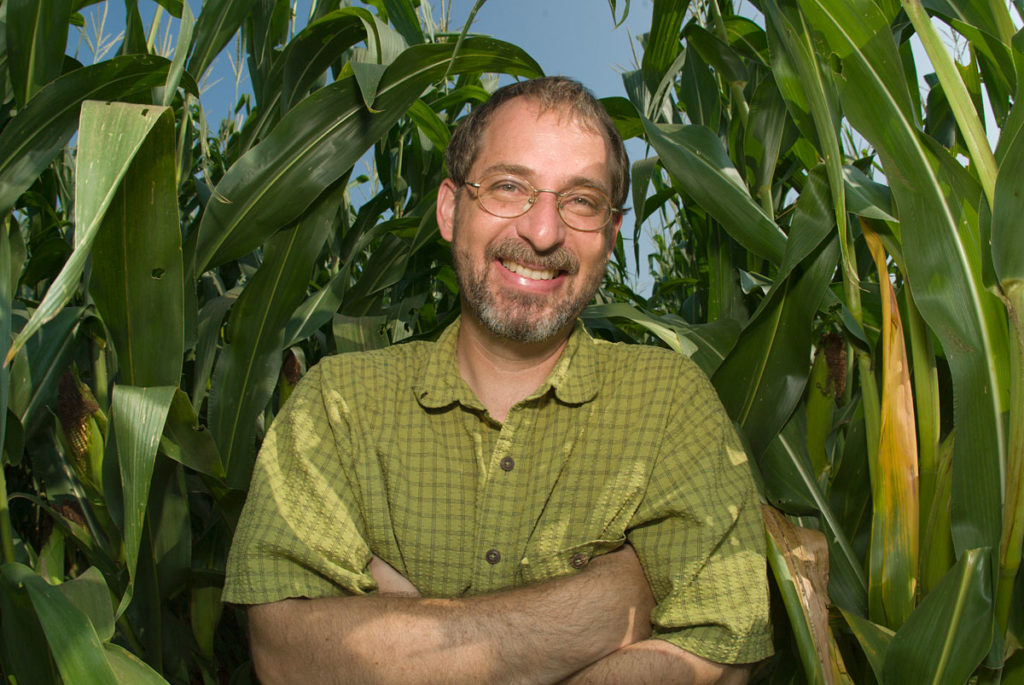R. Kelly Dawe, a professor of plant biology and genetics at UGA, has been named the first Georgia Research Alliance Distinguished Investigator.
The honor will be awarded to scholars at GRA-affiliated universities who demonstrate outstanding work in either the biosciences or advanced communications and computing. Each honoree will take on the title of “Georgia Research Alliance Distinguished Investigator” and receive an annual endowment provided jointly by the GRA and funds raised by the honoree’s university.
The award honors longtime UGA professor of biochemistry and molecular biology Lars G. Ljungdahl.
“We’re delighted,” says Garnett S. Stokes, dean of the Franklin College of Arts and Sciences. “Dr. Dawe’s outstanding record speaks for itself, and we are especially glad that the award honors Dr. Ljungdahl, one of the most distinguished faculty members ever in the Franklin College of Arts and Sciences.”
The GRA was equally enthusiastic.
“This program is designed to help retain Georgia’s best and brightest scholars who may be targeted for recruitment by other states,” says Susan Show, GRA vice president. “While we focus on luring the top researchers from around the world to Georgia, we can’t forget to take care of promising researchers who are helping our universities and our economy with their work. We’re pleased that our first award honors one of GRA’s early collaborators in Dr. Ljungdahl and one of the University of Georgia’s most promising scientists in Dr. Dawe.”
To earn a GRA Distinguished Investigator designation, researchers must have a proven track record of grant productivity and team leadership in a research environment. Honorees will also demonstrate an interest in applying research to commercial opportunities that build Georgia’s science and technology-based economy.
Dawe’s research centers on how plant chromosomes are segregated to progeny. His laboratory focuses on structures known as centromeres, which are responsible for the movement of chromosomes from one generation to the next. He hopes to use information about centromeres to create “artificial chromosomes” that can be used to introduce new genetic traits into crop plants.
Dawe received a master’s degree from the University of California-Riverside and obtained his Ph.D. in genetics from the University of California-Berkeley. He joined the UGA faculty in 1989 and received the 2000 Creative Research Medal from UGA for his study of how plant chromosomes work in cells.
A model public-private partnership between Georgia universities, business and state government, the Georgia Research Alliance helps build Georgia’s technology-rich economy in three major ways: through attracting Eminent Scholars to Georgia’s research universities; through improving laboratories and equipment at these research universities; and through converting research into products, services and jobs that drive the economy.
